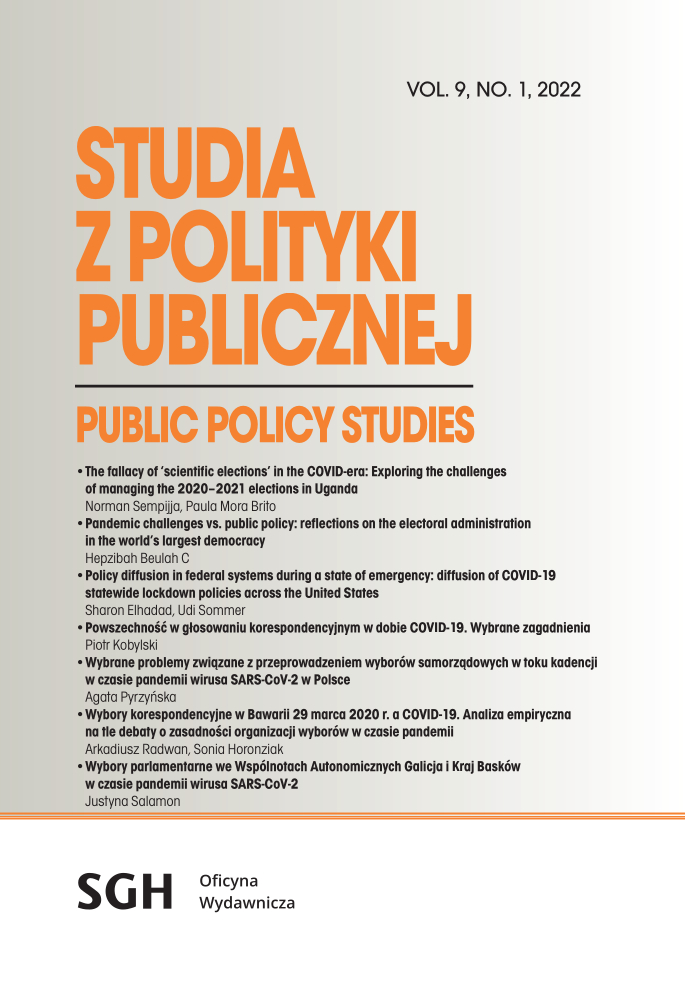Pandemic challenges vs. public policy: reflections on the electoral administration in the world's largest democracy
Pandemic challenges vs. public policy: reflections on the electoral administration in the world's largest democracy
Author(s): Hepzibah Beulah CSubject(s): Politics / Political Sciences, Social Sciences
Published by: Szkoła Główna Handlowa w Warszawie
Keywords: Electoral Administration; India; virtual campaign; voter safety; pandemic election
Summary/Abstract: Democratic elections pose an immense challenge to any government during an emergency crisis like the COVID-19 pandemic. More so for a country like India, with close to 18% of the world's population comprising an equally daunting and eager voter base of around 911 million in the time of a raging virus, both in the urban and rural areas of the nation. The first democratic large-scale election during the pandemic was successfully held in the state of Bihar in North India with more than 90 million voters, which was an astonishing feat by itself. The model followed by South Korea with the highest voter turnout provided an insight to the Indian authorities on conducting the elections. The Indian Election Commission, an independent statutory body which is entrusted with the task of conducting free and fair elections, allowed for the virtual mode of campaigning, and specific guidelines for polling were recommended. The rule changes have profound implications in significantly reducing crowded campaigns, which was synonymous with Indian democracy. The traditional lens through which the administration of elections was perceived has undergone a paradigm shift during the pandemic. New insights might surface if the electoral administration is reviewed in this study on an argumentative basis against the background of the big steps taken by the Indian election machinery. The aspects on which the research debates include: (i) the pros and cons of the action taken by the regulators; (ii) positive and negative responses from the political parties; and (iii) health and safety of the voters. The study concludes by affirming with data on the success of the Bihar Election and the wise choice of the Indian government in seizing the opportunity by taking the cues from South Korea.
Journal: Studia z Polityki Publicznej
- Issue Year: 9/2022
- Issue No: 1
- Page Range: 33-53
- Page Count: 21
- Language: English

